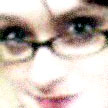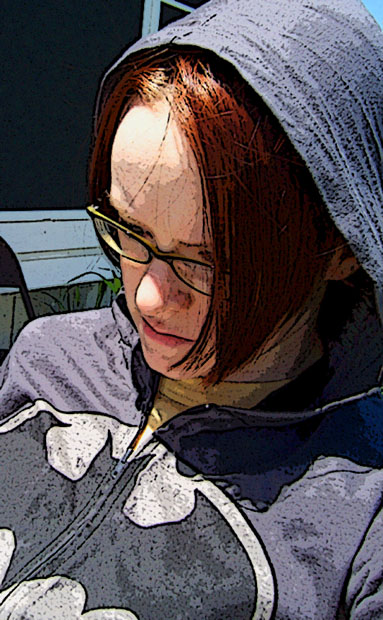I'm taking a course on the role of higher education in a democracy, and class discussion is bringing up interesting thoughts.
I was fascinated by "A Religious Idea Called 'America'" by David Gelernter (Bradley Lecture, Washington, February 13, 2006). Many of the statements the author makes solidify aspects of America that had puzzled me for some time.
The first of these is what the author refers to as "American Zionism." This is a particularly apt metaphor for this feeling that seems to be inherent in many Americans that America is the best country that ever is or was, a chosen country, perhaps even chosen by God. This is something that I never questioned growing up, but became abruptly aware of when I took my first trip abroad after my sophomore year of college. It seems bizarre now, but before then the "outside world" (meaning anyplace outside of America) was simply an abstraction to me. I believed that other countries existed, that people lived in them, but I didn't truly grasp what that meant. When I landed in Italy, suddenly the rest of the world was concretely real to me. I realized that the faceless people I had imagined living in these countries were individuals just like me, who were simply born somewhere else. I realized that there were other worldviews, other contexts from which to understand world events.
And that made me suddenly question America's historic foreign policy of helping (or meddling, depending on your perspective) in other countries' issues. Helping when asked is one thing, but as we all know, America has done more than that--just look to Vietnam or Iraq, to use the obvious examples. I can see why the potential to free a people and give them a democracy is an attractive idea, but is it our business to do so? Why do so many of us seem to think that it is our right, perhaps our divine right, to decide that a country should be governed in a certain way, and to invade and wage war to ensure that this is so?
I find it difficult to define ethics outside of a specific moral code (as is discussed in James Campbell's Understanding John Dewey, chapter 4, the idea of ethics as a secular moral code). I find it difficult to define "right" and "wrong" without a specific code or criteria. I'm sure that some of this difficulty is because I was brought up in a religious home, and my natural pattern of thinking has been defined by a specific moral code. However, regardless of my own beliefs, I believe that America as a country is defined by and exists in large part to protect religious freedom, and as such should be ruled in as secular and nonbiased a manner as possible. It's simply difficult for me to define how that governing should run, what moral code it should adhere to, without having something specific against which to judge that government's actions.
This post doesn't specifically relate to education thus far, but I have had similar intellectual struggles with education in similar manners. How can we teach a variety of worldviews, values, and perspectives in an honest manner to students? Is disclosing our own personal perspective a helpful insight, a cautionary disclosure of our bias, or a harmful influence that creates more bias?
The more I study and think, the fewer answers and more questions I have.
1.26.2010
Subscribe to:
Posts (Atom)


